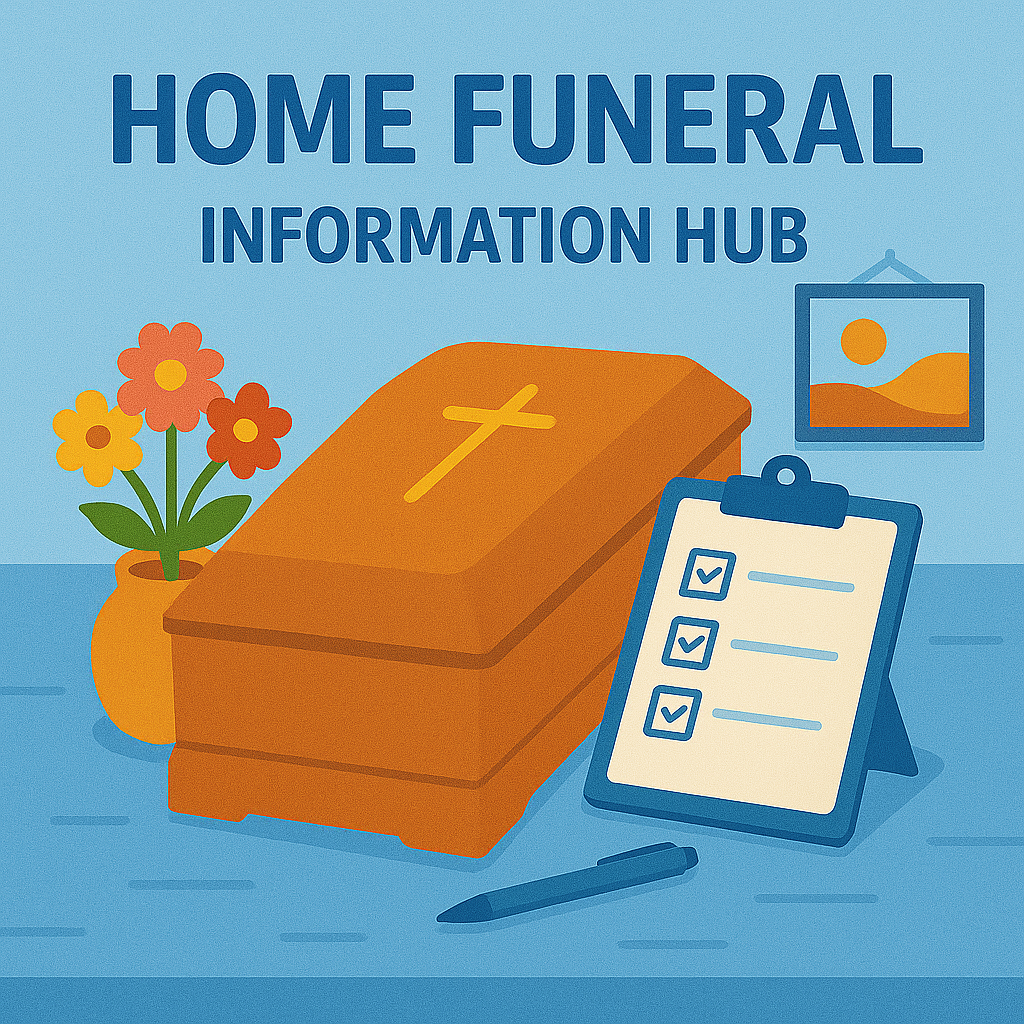Honoring Life in the Comfort of Your Home
The Home Funeral Hub
Home funerals allow families to care for and honor their loved ones in a personal, meaningful way. This hub offers resources, guidance, and support to help you navigate the process with confidence and compassion.

Key Things To Know
A home funeral allows family and friends to care for a loved one’s body and create meaningful rituals in a familiar setting. It emphasizes presence, simplicity, and a hands-on approach to saying goodbye.
- Home funerals are legal in most states: While laws vary, all states allow families to care for their own dead, though some require a licensed funeral director for certain tasks like filing paperwork or transporting the body.
- They are often led by family or community, not professionals: Unlike traditional funerals, home funerals are usually arranged and carried out by loved ones, sometimes with guidance from a home funeral guide or death midwife.
- You can keep the body at home for a limited time: With proper care and cooling methods (such as dry ice or cooling blankets), the body can typically remain at home for up to three days.
- Preparation of the body can be simple and respectful: Washing, dressing, and laying out the body are often seen as acts of love. These steps can be done by family members or with guidance.
- You can hold a vigil, ceremony, or quiet time: Home funerals give space for private goodbyes, storytelling, prayers, music, or simply sitting in silence with the person who has died.
- Required paperwork still applies: Families must complete a death certificate, secure a burial or cremation permit, and follow local rules about disposition and transportation.
- Home funerals can be paired with burial or cremation: After the home-based care and ceremony, the body can be transported for burial, cremation, or natural burial depending on the family’s wishes.
- They are often more affordable: By handling preparation and ceremony at home, families can reduce or eliminate many traditional funeral costs.
- Support is available if you want it: Home funeral guides, doulas, or experienced communities can walk you through the steps and ensure you feel prepared.
- This is a return to long-standing traditions: For most of human history, death care happened at home. Choosing a home funeral today can feel intimate, empowering, and rooted in values of connection and care.
Resources
You shouldn’t have to navigate the process of planning a home funeral on your own. Fortunately, we have resources to guide you every step of the way.
A Few Instagram Accounts We Follow
Home Funeral Related Content
Frequently Asked Questions About Home Funerals
Disclaimer: The information provided on this website and by Buried in Work is for general informational purposes only and should not be considered legal advice. Please consult with a qualified attorney or subject matter expert for advice specific to your situation.

